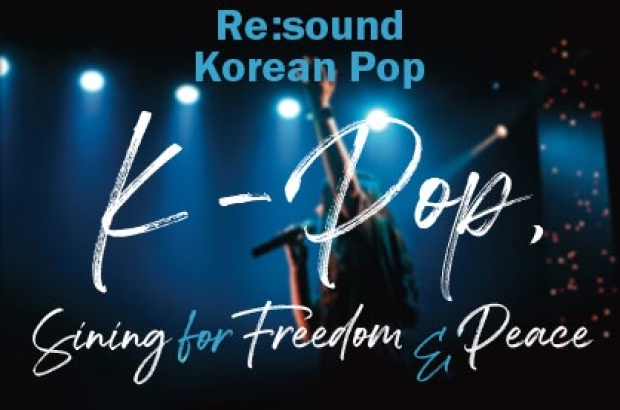- Daily & Weekly newsletters
- Buy & download The Bulletin
- Comment on our articles
More than K-pop: Sound Korea 2022 shines a light on the diversity of the Korean music scene
Since its emergence in the 1990s, K-pop, short for Korean pop music, has taken the world by storm. Korean culture has become a successful global phenomenon, from Netflix hit Squid Game, digital technology and food to the acclaimed film Parasite, the first foreign language title to win an Oscar for best picture.
There’s even a specific word for it, as Kim Jaehwan, director of the Korean Cultural Center (KCC) in Brussels, explains: “This global craze for Korean culture is referred to as ‘Hallyu’. ‘Han(한)’ means ‘Korea’ and ‘Lyu(류)’ means ‘wave’. Korean culture has spread across the world, like a wave breaking onto the shore.”
The centrally-located center at Rue de la Regence 4, offering a varied and curated programme ranging from film screenings and concerts to contemporary art exhibitions and book clubs, has clearly felt a rising interest: “When we first opened nine years ago, a few K-pop fans and the curious would show up. Now, the situation is very different, and most people I meet have already experienced some parts of Korean culture”, adds Haetal Chung, responsible for communication.
But there is more to Korean culture than the widely known blockbuster successes, as the concert series Sound Korea 2022 seeks to prove. From September to December, the festival aims to show a Belgian audience the diversity of the Korean music scene, spanning from traditional and classical music to jazz, folk rock, and contemporary pop.
Says Chung: “K-pop, which originally just stood for Korean popular music, has become something famous and very specific. But Korean pop already existed before that. Many singers didn’t get enough opportunities to enter the international scene. That’s why we want to show all sorts of Korean music.”
The highlight is “Singing for Freedom & Peace” on 14 September at La Madeleine, a concert giving insight not only into the world of Korean pop and rock before K-pop became a global phenomenon, but also into local political history. It’s also a tribute to Kim Mingi, whose celebrated musical oeuvre is the star of the evening. The line-up, featuring six different Korean musical artists, will perform compositions by the legendary musician and political activist. His songs became anthems of freedom under the dictatorship in the 80s. They will also perform their own hit numbers.

On 16 September, Leenalchi (pictured) presents a contemporary take on Korean traditional music, merging old and new, at Ancienne Belgique Club. The seven members have made a name for themselves with their alternative pop soundscapes. Bringing together innovation and tradition is also at the heart of a Belgian-Korean collaboration to be discovered live on stage at the KCC between 16 and 25 November. Baudouin de Jaer and Kim Joonyoung create experimental soundscapes incorporating an indigenous Korean string instrument, the Gemomungo, a longboard zither whose origins can be traced to the 5th century.
It's not the only Korean instrument that may be new to Belgian audiences. On 6 December, Kang Eunil will perform in a quartet playing the Haegueum, a two-stringed vertical fiddle, at Theatre Marni.
The Korean penchant for classical music is already famous in Belgium. At the prestigious Queen Elisabeth Music Competition, a pinnacle of the musical calendar, Korean musicians have been excelling in large numbers. Pianist Kim Sunwook and violinist Clara-Jumi Kang will attest to this prowess at Flagey on 19 October.
Still today, music carries a political connotation in South Korea. At the border with its northern neighbour, large speakers blast music daily across the frontier, from BTS to Black Pink. “The world today responds more effectively to soft power like culture rather than hard power such as military might,” Kim Jaehwan concludes.
Sorry! Our prize giveaway has now closed and the winners have been notified.



















